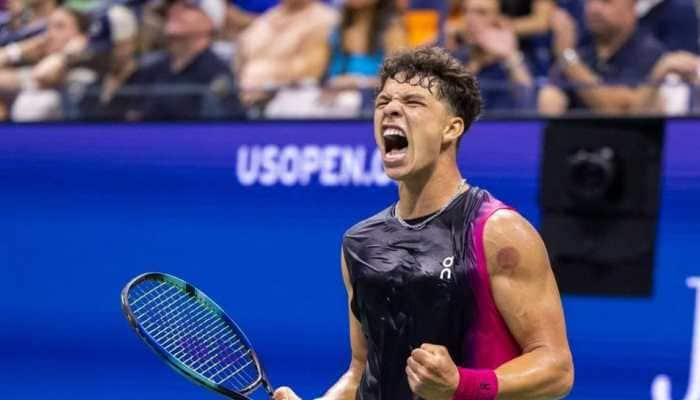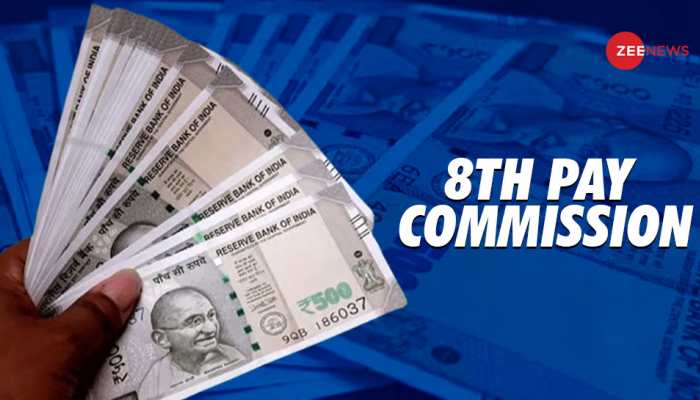Simultaneous elections a 'total misadventure', considering them is 'useless': DMK chief MK Stalin to Law Commission
Implementing the very idea would mangle the Constitution of India in a way that the Supreme Court has already ruled out, was among the points Stalin made.
Trending Photos
) MK Stalin has flatly rejected simultaneous election on behalf of the DMK. (File picture)
MK Stalin has flatly rejected simultaneous election on behalf of the DMK. (File picture) CHENNAI: DMK working president MK Stalin on Sunday comprehensively rejected the idea of simultaneous elections, which has been branded as 'One India One Election', on behalf of his party. He dismissed the idea to sync the conduct of Lok Sabha elections and Assembly election of all the states as a 'total misadventure'. He also said it is 'useless' to explore the possibility, since it had already been completely rejected in a previous attempt during the previous NDA government.
The call to hold elections simultaneously is an old idea that has filed to find traction in the past. It has been pushed by the present Narendra Modi government on the grounds that it would save time and money for the government to get done will all elections in one go. This was among the key points that Stalin targeted.
Stalin made his opposition to the idea clear in a letter to Justice BS Chauhan, chairman of the Law Commission of India. The Commission had written to all recognised political parties, asking for their opinion on simultaneous elections.
"When the raison d'etre for conducting Simultaneous Elections appears to be the "massive expenditures" borne by the government in conducting elections, procurement of EVMs and VVPATs alone for conducting Simultaneous Elections would cost about 10,000 crores (recurring every 15 years). The entire expenditure borne by the central government for conducting general elections in 2014, meanwhile, was only Rs. 3870 crones or roughly, 45 rupees per elector. It is not clear how this can be considered 'huge' or 'massive' or how spending thousands of crores more would be more 'efficient'," said Stalin in his letter.
He also underlined some features of the Working Paper published by the Law Commission and termed them 'discrepancies'. He pointed out that some of the points in this Working Paper would directly alter the concept of federalism enshrined in the Constitution.
"Though the Parliament is empowered to amend the Constitution - in accordance with Article 368 - there are basic features of the Constitution which cannot be abrogated. Federalism is one such basic feature and this has been repeatedly held by the Hon'ble Supreme Court in cases such as Golak Nath v. State of Punjab and Kesavananda Bharati v. State of Kerala. Any proposal to amend these fundamental tenets in turn threatens to tear apart the fabric holding the nation together," read Stalin's letter.
The Supreme Court in 1973 had ruled that while Parliament has the power to amend the Constitution, it does not have the power to make changes that alter the basic structure of the Constitution as it was originally adopted in 1950, meaning any amendment would remain open to judicial review.
He also dismissed the examples of countries that hold simultaneous elections given in the working paper - Sweden, Belgium and South Africa - and pointed out that their combined population of (76 million or 7.6 crore) was lower than the population of just Tamil Nadu (79 million or 7.9 crore). The massive numbers in play in India make comparisons to these countries "logically fallacious" and "unhelpful to the present discourse" he said.
Stalin also pointed out that a previous effort made to study the feasibility of simultaneous elections had been largely ignored. He also pointed out that a 2015 report by the Parliamentary Standing Committee on Personnel, Public Grievances. Law and Justice (consisting of all major political parties from across the country), had concluded that "gaining consensus of all political parties may be difficult" and that "holding Simultaneous Elections may not be feasible in 2016 or even in a decade".
"Under these circumstances - where an earlier Law Commission has already reported on the issue exhaustively and where Parliament is sceptical whether this idea can be ever implemented - this redundant exercise of producing a duplicative report that has no chances of being legislated appears questionable and if I may say, useless, both from a legal and political standpoint," Stalin said in his letter.
"In sum, the present proposal of the Law Commission of India seems to be a complete misadventure that will decimate the federal structure. I respectfully submit my party's whole hearted opposition to the proposal of 'One India One Elections'," he concluded.
Stay informed on all the latest news, real-time breaking news updates, and follow all the important headlines in india news and world News on Zee News.
Live Tv







)
)
)
)
)
)
)
)
)
)
